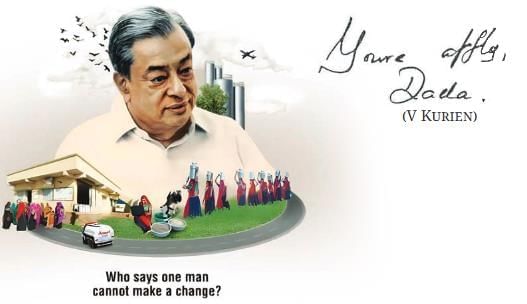Very Short Answer Questions: I Too Had A Dream | English Poorvi Class 8 - New NCERT PDF Download
Q1. Who is the writer of I Too Had a Dream?
Ans: The writer is Verghese Kurien, known as the “Father of the White Revolution in India.”
Q2. To whom is the letter in the chapter addressed?
Ans: The letter is addressed to Kurien’s grandson, Siddharth.
Q3. What difference does Kurien mention between writing and speaking on the phone?
Ans: Speaking gives fleeting joy, but writing can be treasured and re-read for years.
Q4. What was the noblest task after India’s independence, according to Kurien?
Ans: The noblest task was contributing to building an India free from hunger, poverty, and inequality.
Q5. What career did Kurien initially envision for himself?
Ans: He had planned to work in metallurgy or pursue a career in the army or abroad.
Q6. Where did Kurien finally choose to work?
Ans: He chose to work in Anand, Gujarat, with a small dairy cooperative.
Q7. Who supported Kurien in his decision to stay in Anand?
Ans: His wife (Siddharth’s grandmother) ardently supported his decision.
Q8. Who was Kurien’s mentor in Anand?
Ans: Tribhuvandas Patel was his mentor and supporter.
Q9. What value did Kurien consider most important in life?
Ans: Integrity—being honest with oneself.
Q10. What does Kurien mean by “life is a privilege”?
Ans: He means life is a gift, and wasting it is wrong; one must use it for good.
Q11. What, according to Kurien, is the real meaning of failure?
Ans: Failure is not about not succeeding, but about not putting in one’s best effort.
Q12. How should one contribute to the common good, according to Kurien?
Ans: By helping friends, volunteering for teachers, or supporting the community.
Q13. What correlation does Kurien draw between circumstances and happiness?
Ans: He says happiness is not directly linked to circumstances; it depends on how one values life.
Q14. When did Kurien receive the Padma Vibhushan?
Ans: He received the Padma Vibhushan in 1999.
Q15. What innocent question did Siddharth ask at the award ceremony?
Ans: He asked if he could keep the medal.
Q16. What was Kurien’s reply about the medal?
Ans: He said the medal was Siddharth’s too, but he should earn his own reward in life.
Q17. What hope does Kurien express for the younger generation?
Ans: He hopes they will work tirelessly for the good of the country and humanity.
Q18. How does Kurien define personal integrity?
Ans: He defines it as being honest to yourself, which makes it easier to be honest with others.
Q19. What values did Kurien inherit from his family?
Ans: He inherited values of honesty, service, and integrity.
Q20. What choice did Kurien’s grandmother (wife) make?
Ans: She chose to support his decision to live in Anand despite hardships.
Q21. What does Kurien say about comparing ourselves with others?
Ans: He says comparisons are often misleading because people only show images of perfection.
Q22. What does Kurien dedicate his musings to?
Ans: He dedicates them to Siddharth and the younger generation of India.
Q23. What kind of life does Kurien say is truly “well-lived”?
Ans: A life where one loves, rejoices in others’ happiness, and contributes to humanity.
Q24. Who is called the “Father of the White Revolution”?
Ans: Verghese Kurien.
Q25. What does Kurien mean by “true rewards”?
Ans: Rewards that come from one’s own hard work and service to others.
|
57 videos|342 docs|57 tests
|
FAQs on Very Short Answer Questions: I Too Had A Dream - English Poorvi Class 8 - New NCERT
| 1. What is the main theme of "I Too Had a Dream"? |  |
| 2. Who is the author of "I Too Had a Dream" and what is his significance? |  |
| 3. How does the author describe his childhood experiences in the book? |  |
| 4. What role does education play in "I Too Had a Dream"? |  |
| 5. What message does the author convey to the youth in "I Too Had a Dream"? |  |





















